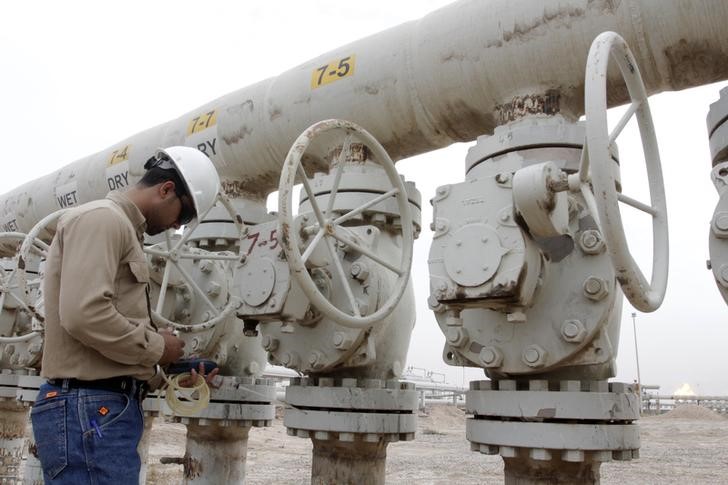Investing.com - West Texas Intermediate oil futures fell sharply on Wednesday, amid speculation weekly supply data due later in the session will show U.S. crude inventories rose to the highest level on record last week.
On the New York Mercantile Exchange, crude oil for May delivery dropped $1.10, or 2.05%, to trade at $52.88 a barrel during European morning hours.
Wednesday's government report was expected to show that U.S. crude oil stockpiles rose by 3.4 million barrels last week, while gasoline stockpiles were forecast to decline by 1.1 million barrels.
After markets closed Tuesday, the American Petroleum Institute, an industry group, said that U.S. crude inventories increased by 12.2 million barrels in the week ended April 3, compared to forecasts for a gain of 3.0 million.
The report also showed that gasoline stockpiles rose by 2.7 million barrels, while distillate stocks increased by 331,000 barrels.
A day earlier, New York-traded oil futures rallied to $54.13, the most since February 18, before ending at $53.98, up $1.84, or 3.53%.
Nymex oil futures spiked almost 10% in the two sessions leading to Wednesday amid speculation an ongoing collapse in rigs drilling for oil in the U.S. will result in lower production.
Elsewhere, on the ICE Futures Exchange in London, Brent oil for May delivery slumped 74 cents, or 1.26%, to trade at $58.36 a barrel. On Tuesday, Brent rose 98 cents, or 1.69%, to settle at $59.10.
London-traded Brent prices moved lower after Saudi Arabia's oil minister Ali al-Naimi said that the kingdom produced a record 10.3 million barrels per day in March.
Meanwhile, the spread between the Brent and the WTI crude contracts stood at $5.48 a barrel, compared to $5.12 by close of trade on Tuesday.
Elsewhere, the U.S. dollar index, which measures the greenback’s strength against a trade-weighted basket of six major currencies, was down 0.5% to trade at 97.75 early on Wednesday.
Investors will be focusing on Wednesday’s minutes of the latest Federal Reserve meeting for further indications on the central bank's next policy moves after Friday's downbeat jobs data fuelled uncertainty over the timing of a rate hike.
The Labor Department reported Friday that the U.S. economy added 126,000 new jobs in March, less than half of February’s gain and the smallest increase since December 2013.
